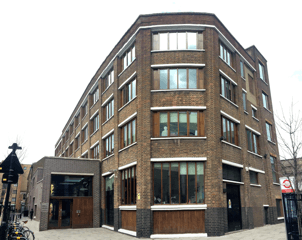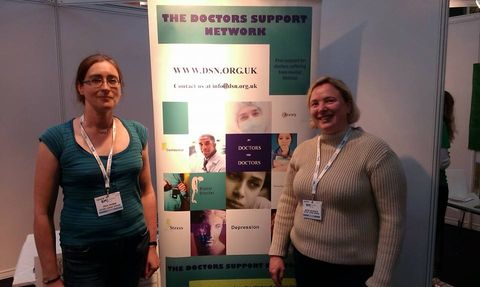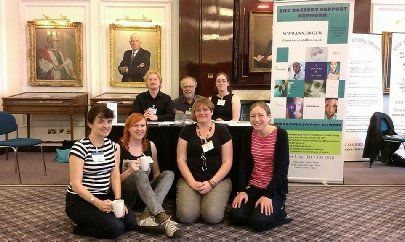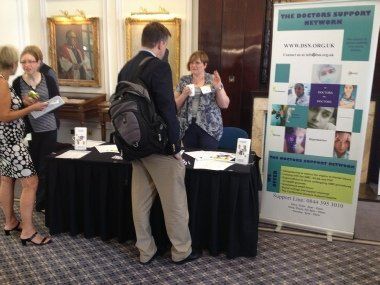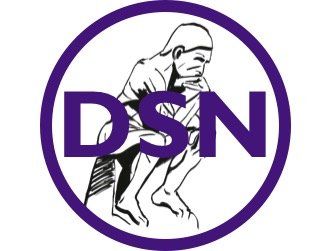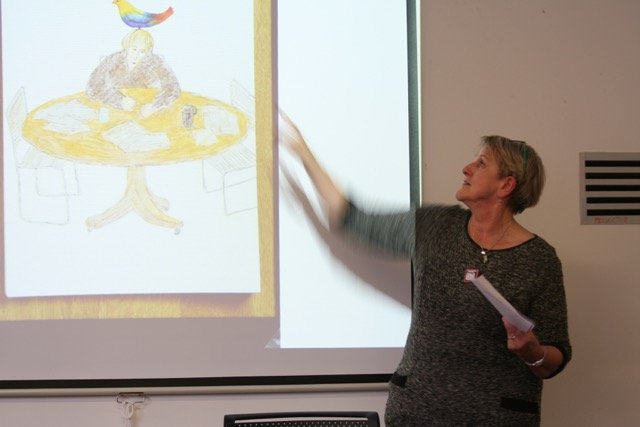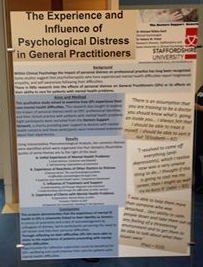Reflections on ICPH 2014Dr Alison Holt
Fifteen years ago I believed that doctors could not get ill, that I could not be ill. I was forcefully disabused of this notion. But when recovered I had to go back into the world where unwell doctors were an anathema, if they were acknowledged at all. In the intervening years I have become involved in supporting others, through DSN and elsewhere, and a lot of what I do is awareness raising- popping up at conferences and training events to make the case that doctors get ill and that getting help is difficult. And audiences range from hostile, through dismissive, to accepting and interested. But always is the need to explain, to justify what I am saying, to "make a case".
The most enjoyable thing for me about the International Conference on Physician Health was spending three days surrounded by people who already 'get it' – who understand that there is a problem and are actively involved in trying to solve it – be that through policy, education, service provision or research.
Refreshing, re-energising, inspiring, interesting and affirming. Not often you can say that after three days of study leave!
Dr Louise Freeman
I was interested that there were frequent references at ICPH to the needs of sick doctors for advocates. We recently heard at the DSN conference that occupational health practitioners cannot be advocates due to their responsibilities towards doctors and employers. So who should be the advocate for the sick doctor? Doctors providing specialist services to sick doctors would seem to be the obvious candidates for this role. I wondered if physician health practice in North America differs from that in the UK given that the Canadian and US doctors seemed very comfortable with this concept.
Sarah
It was a real privilege to attend the ICPH and help to man the DSN stand. As a relatively new member of DSN, it was lovely to meet people face-to-face and to support each other in person. While manning the DSN stand, we met people from all over the world, explaining the set-up of DSN and sharing experiences. Support networks for doctors have been set up in many countries, but often with a “top-down” structure, rather than providing peer support (like DSN does). It was also a privilege to be able to attend the plenary sessions and seminars throughout the conference.
Is a Career in Medicine Suitable for Women?
A highlight for me was attending a talk given by Dr Clare Gerada, entitled, “Is a career in medicine suitable for women?” The talk was structured around data from the Practitioner Health Programme (PHP)1.
Over the past five years, PHP has seen a surge in young doctors (aged 25–35 years) consulting the service; the majority of whom are women, with a peak age of 29–30 years. Several postulations were given for this:
1. Characteristics of “good doctors” (e.g. perfectionism and altruism) make us more vulnerable to mental health problems.
2. The NHS is a toxic, barbaric environment within which to work, with a culture of bullying and blame.
3. As a trainee, there is very little stability: we cannot guarantee where we will work, what our next placement will be, and where we will live. The lack of a “firm structure” at work also means that we may be working with different people each week, leading to further instability.
4. Young female doctors look around at their peers - many of whom by the age of 28–30 years have a stable career, a partner, and children. It is hard to ignore the “biological clock” ticking away … this creates tension between progressing through training and wanting to settle down to start a family.
5. We are exhausted from working erratic shift patterns, which disrupt continuity, reduces resilience and causes exhaustion.
The good news is that once women access the service provided by PHP, they do remarkably well. The majority are back to full functioning after five or six sessions of cognitive behavioural therapy and have an increased awareness of how to avoid a relapse. But fundamentally, the working environment needs to be reviewed to make it less “toxic”; to provide more continuity and stability (e.g. by restoring firm structure); which, in turn, will lead to increased resilience and reduce disruption to everyday life.
Reference:
1. Gerada C, Jones R, Wessely A. Young female doctors, mental health, and the NHS working environment. BMJ Careers 9 Jan 2014.
